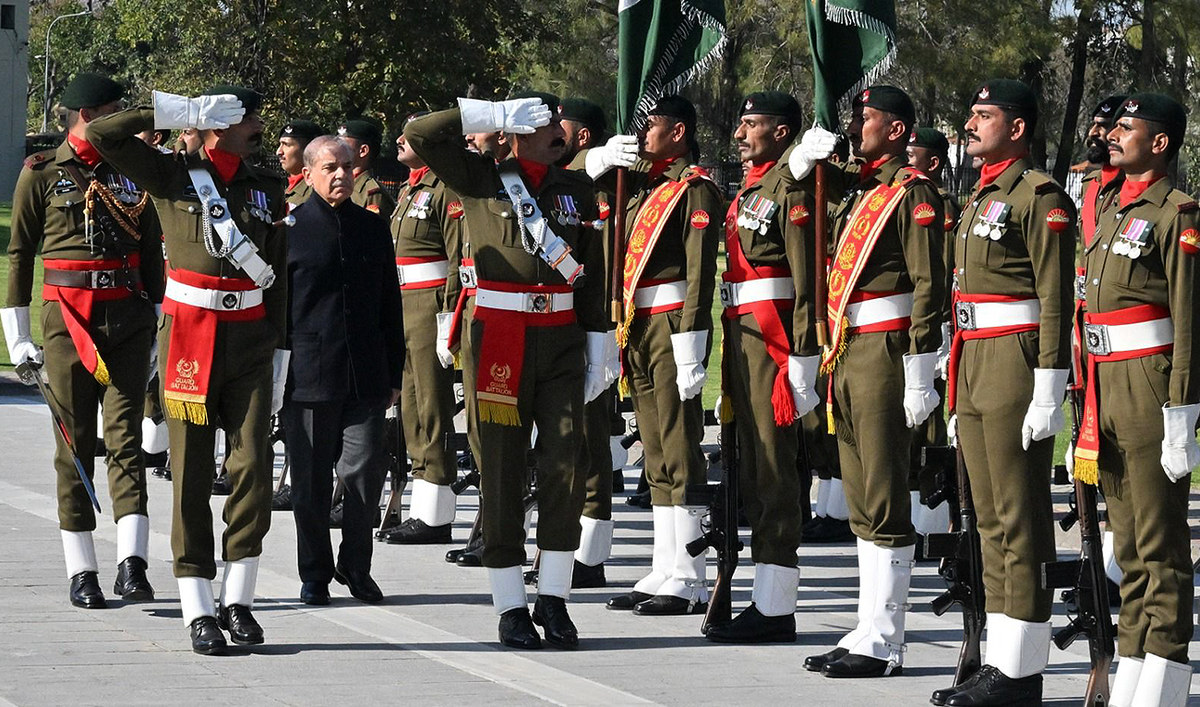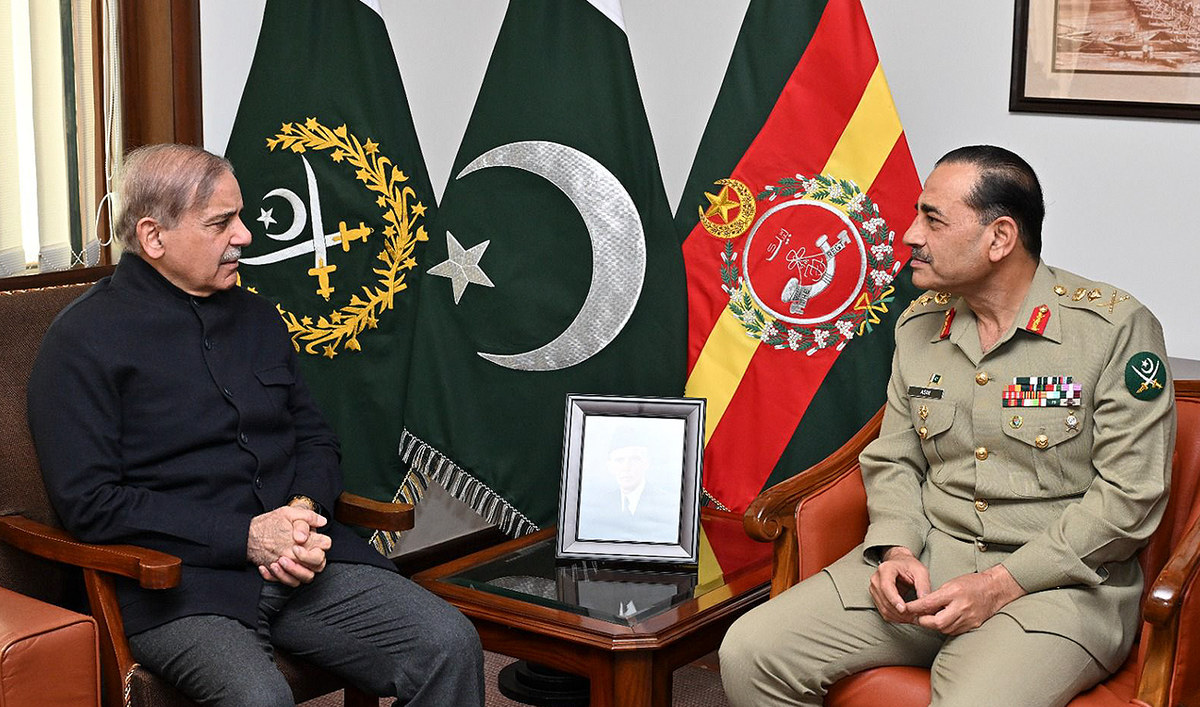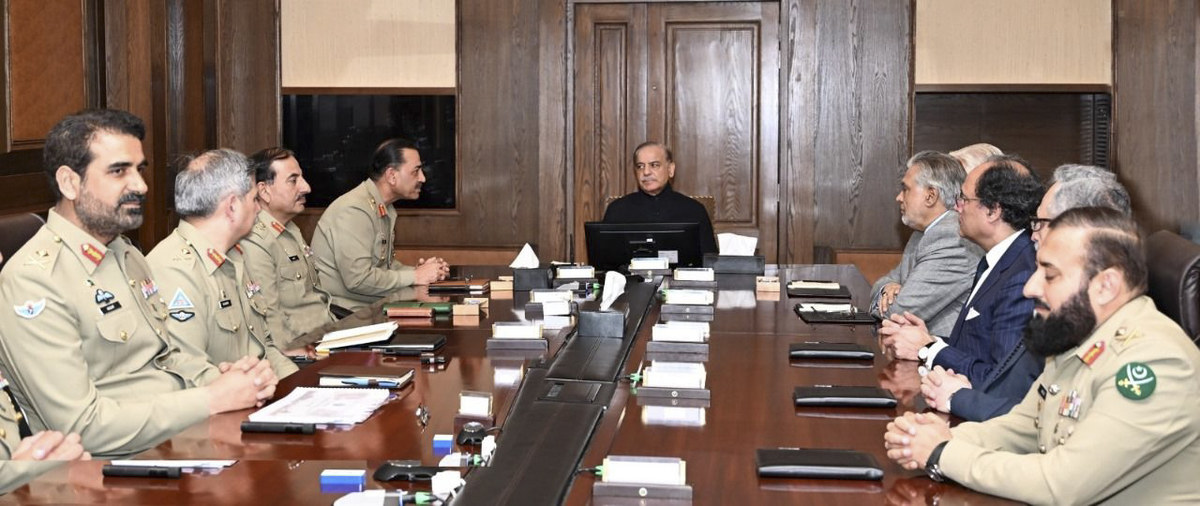ISLAMABAD: Prime Minister Shehbaz Sharif assured the country’s armed forces on Friday his administration would provide all necessary resources for them to effectively perform their professional responsibilities on his first visit to the army’s General Headquarters (GHQ) in Rawalpindi since his election to the country’s top political office.
The army has historically played an outsized role in the country’s politics, often exercising significant influence over governance and policy decisions, with a history of direct rule through military coups. Recently, however, its leadership has publicly denied intentions to interfere in political affairs, asserting a commitment to uphold democracy and remain apolitical, amid growing public scrutiny over its past involvements in political matters.

In this handout picture, taken and released by Inter Services Public Relations (ISPR) on March 15, 2024, Pakistan’s newly elected Prime Minister Shehbaz Sharif reviews a guard of honor at the General Headquarters in Rawalpindi, during his first visit to army headquarters after assuming office. (Photo courtesy: ISPR)
The prime minister, who was accompanied by the key members of his cabinet during the visit, was received by the army chief General Asim Munir upon arrival. During their stay at the GHQ, Sharif and his cabinet members engaged in discussions with the military leadership on matters of national security, regional stability and military preparedness.
They were briefed on the current security environment of the country, threat spectrum and the ongoing counterterrorism operations in different parts of the country.
“The PM assured that the Government shall provide all the resources required for ensuring operational readiness of the Armed Forces,” announced an official statement released by the army’s media wing, ISPR, after the visit. “He said that Pakistan is destined to rise and the role of the Armed Forces in ensuring peaceful rise of Pakistan cannot be over-emphasized.”

In this handout picture, taken and released by Inter Services Public Relations (ISPR) on March 15, 2024, Pakistan’s newly elected Prime Minister Shehbaz Sharif (L) speaks during a meeting with army chief General Asim Munir (R) on his first visit to army headquarters after assuming office in Rawalpindi. (Photo courtesy: ISPR)
The army chief thanked the prime minister for the visit and showing his confidence in the armed forces of Pakistan.
He said the army would continue to measure up to the nation’s expectations and resolutely support the government in addressing the security challenges facing the country.
Both the military and political leaders reiterated their commitment to upholding Pakistan’s national interests and working together for its security and prosperity.

In this handout picture, taken and released by Inter Services Public Relations (ISPR) on March 15, 2024, Pakistan army chief General Asim Munir (4L) briefs newly elected Prime Minister Shehbaz Sharif (C) and the cabinet members (R) during a meeting on their first visit to army headquarters after assuming office in Rawalpindi. (Photo courtesy: ISPR)
















